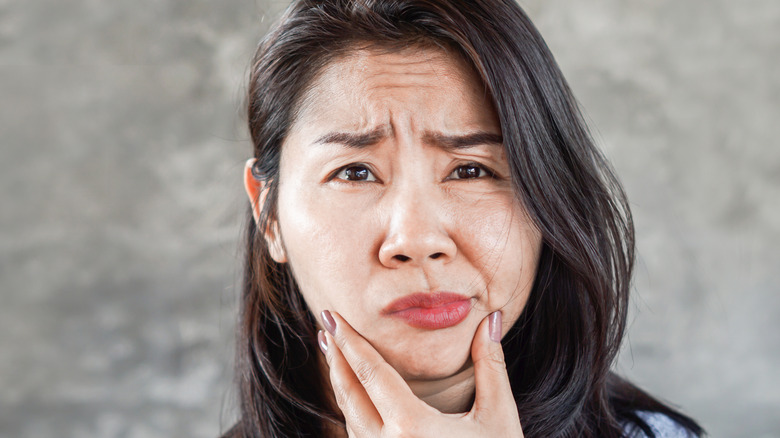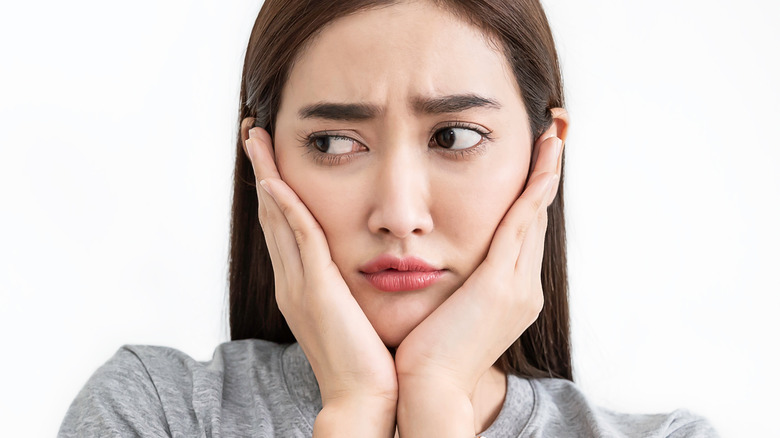The Real Reason Your Jaw Is Twitching
Jaws are an interesting part of the body. They're deemed in society as one of the most attractive body parts — with rigid jaw lines indicating one's hotness to many — and they're directly responsible for the structure and foundation of our mouths. Moreover, they can also hurt if clenched too hard or too much. However, if that's happening too much, you may want to look into the real reason your jaw keeps locking.
The jaw is particularly interesting because it can hurt as a whole or in segments. What it means when the right side of your jaw hurts might be different from the meaning of your jaw's left side hurting, and it might mean something entirely different if your jaw is twitching.
Jaw spasms can come from many origins, including the interaction between the body and certain medications. According to MedicineNet, these medications even include over-the-counter vitamins, so you should check with your doctor if you recently began taking a new medication or supplement and began experiencing jaw spasms. Still, there are several other factors that can lead to jaw spasms.
There may be an exact reason, or none at all
Scientifically, jaw twitches are known as hemifacial spasms, per Healthline, though they're also sometimes known as tic convulsif. These spasms include jaw twitches along with spasms of the chin, upper neck, eyebrow, and cheeks, among other facial areas.
According to Buoy Health, a leading cause of jaw twitches, which are known by themselves as trismus, is dental health. Dental damage, infections, and trauma can all lead to jaw twitches due to the jaw's connection to the mouth. Head trauma can also begin causing jaw twitches, too. Continued spasms can lead to difficulty consuming hard foods, issues speaking, general discomfort and pain, and even hearing loss. It's therefore recommended to get checked out as soon as the spasms start so that symptoms don't worsen over time.
Outside of dental causes, one can begin having jaw twitches because of a prior stroke, seizures, a bacterial infection — and abscesses in one's mouth and/or throat. According to The Mayo Clinic, facial spasms can also be caused by a blood vessel coming into contact with a facial nerve. However — and this is the worst-case scenario — face spasms can occur without any apparent cause. While this is the most unfortunate possibility, it's a real one, and should be taken seriously. In any case, what may seem like innocent twitches may actually lead to something much worse. These should be taken seriously and examined as soon as one is able to.

